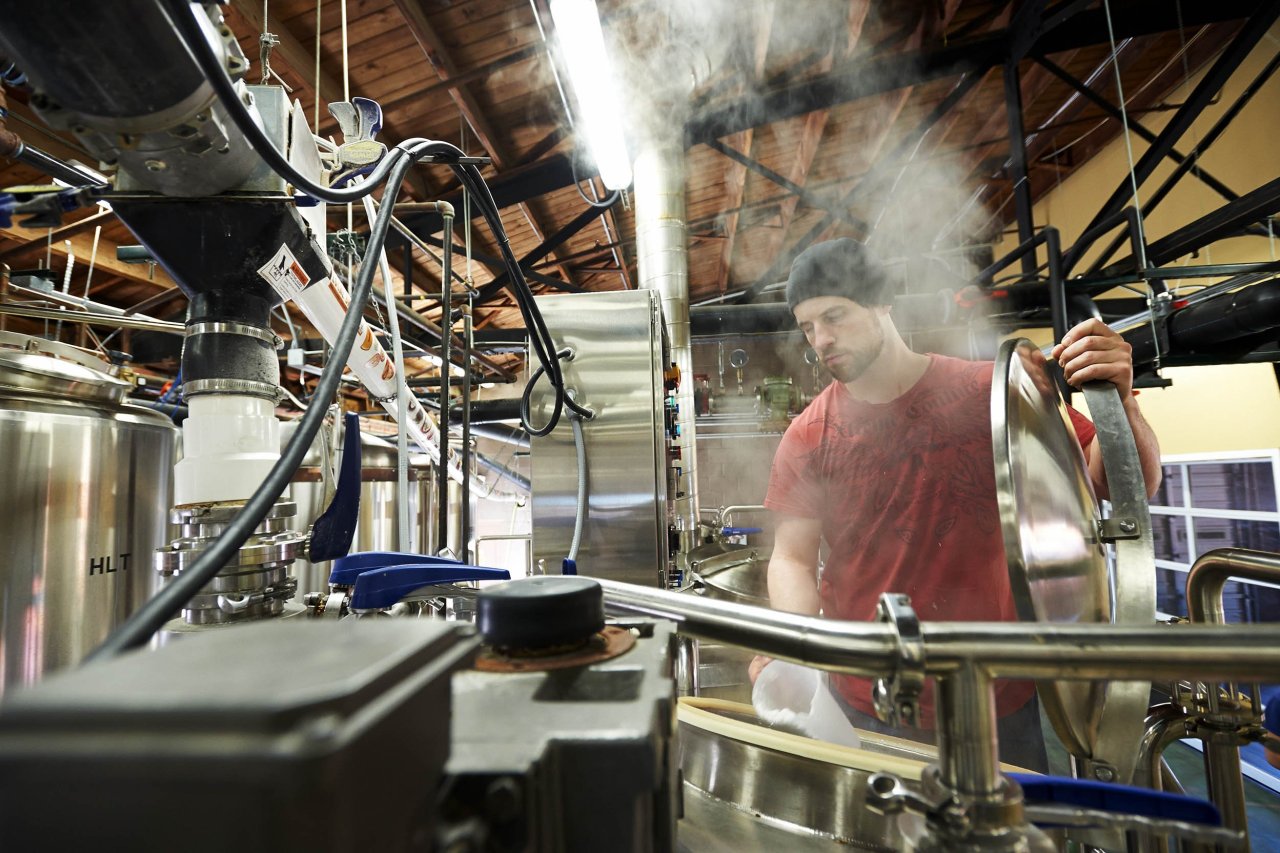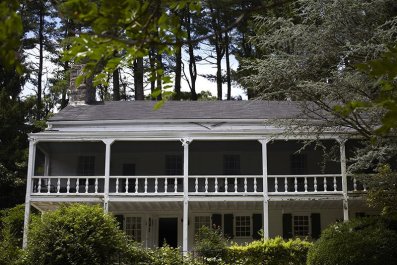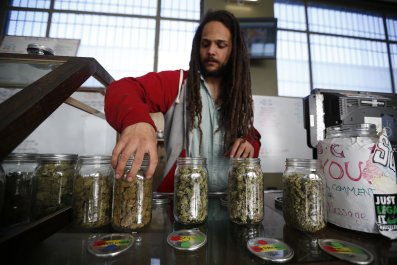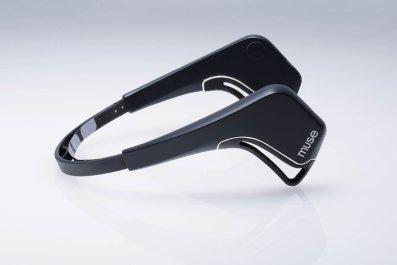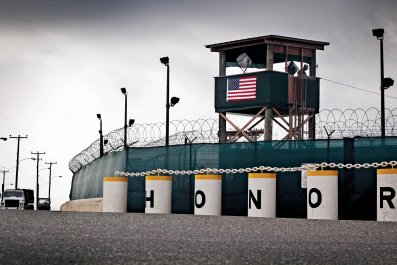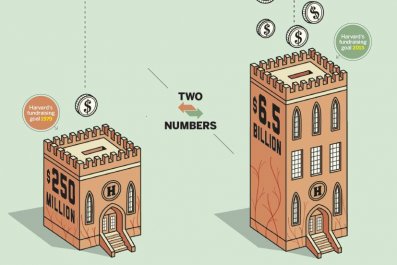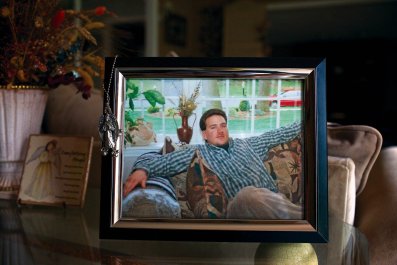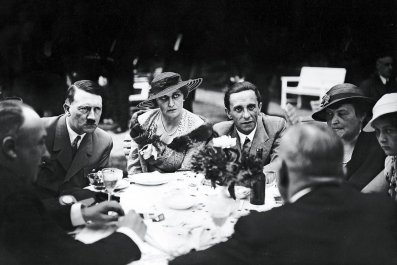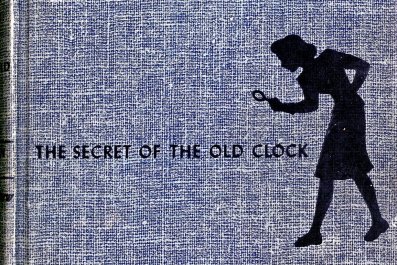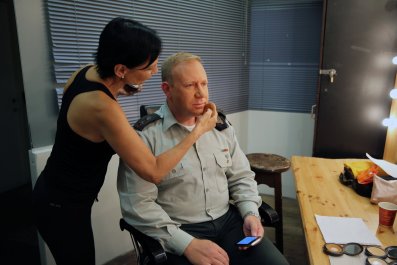Three years ago, Suzie Ford and her husband, Todd, withdrew all their retirement funds to start a brewery. They had no backup plan.
"It was pretty scary. My husband and I are a little older than most people starting a brewery, and we invested every single cent," Suzie Ford, 46, says. (Todd is 51.) "The day before we opened, we kind of had a panic attack. We both just looked at each other and said, Failure's not an option. We're going to make it work no matter what."
The bank where Suzie worked had just been bought out, and Todd, a commercial pilot, wanted a schedule that wouldn't keep him away from home so much of the time. With their son in college, they saw an opportunity for a career change that would let them spend more time together. Their friends had always told Todd that his home-brewed beer was good enough to sell.
In 2011, they emptied both of their 401(k)s using a little-known and highly risky tax procedure called Rollovers for Business Startups (ROBS). To use their retirement plans as business funds, they formed a new corporation which sponsored a new 401k plan, and the new 401k purchased stock in the corporation. Then, their old 401(k)s were "rolled over" into that plan. Three years later, NoDa Brewing Co., based in Charlotte, North Carolina, employs 24 people, distributes to 350 restaurants and stores, and plans to double production within the year. Their "Hop Drop 'N Roll" IPA just won a gold medal at the World Beer Cup, the Olympics of beer competitions. Their risk, it seems, has paid off handsomely.
Yet that is far from the case for everyone who takes advantage of ROBS. If half of all new businesses fail to make it past the first five years, is it wise to take that chance with your only retirement nest egg?
The Internal Revenue Service warned in a 2010 survey of ROBS businesses that "although there were a few success stories, most ROBS businesses either failed or were on the road to failure, with high rates of bankruptcy."
It is, at its heart, a tax strategy. Participants avoid immediate taxation on their retirement funds and pay no penalty to withdraw the money early. They also avoid the headache of U.S. Small Business Administration loans, which have become harder to come by in recent years and can require a down payment of as much as 25 percent, typically withdrawn from a checking or savings account and therefore already taxed. For relatively well-off individuals who have accumulated a substantial 401(k), this may be a reasonably direct route to funding a startup. That is, if they manage not to accrue any violations.
Enrolling in ROBS is an extremely complex process. So is running a C corporation, the type of corporation required for ROBS. The risk of violation is so high that the Small Business Administration warns that using the complex tax strategy is likely to draw increased scrutiny from the IRS.
"The most extreme risk is that during an audit, the IRS finds violations and negates the whole ROBS transaction," says Gary Bode, a CPA in Wilmington, North Carolina, who has several ROBS clients. If the IRS finds fault with the ROBS arrangement and voids it, all of the rolled-over funds would become taxable distributions, forcing the individual to pay back taxes for every year since they filed the initial ROBS transaction, plus a penalty tax. "Most small businesses can't survive that," Bode says.
In fact, in 2008 the IRS completed a systematic audit of many ROBS businesses. A memo from the analysis states, "We have examined a number of these plans…and found significant disqualifying operational defects in most."
Avoiding violations typically necessitates paying regular fees to CPAs like Bode or to the several companies that have sprung up especially for this purpose. Guidant Financial, one such company, has been in the business of helping individuals roll over their 401(k)s for over 10 years. The Washington state-based company charges $5,000 for the initial setup fee and $119 monthly to fulfill ongoing reporting requirements.
David Nilssen, a co-founder of Guidant, says 80 percent of ROBS businesses his company has worked with survive after four years, roughly double the rate for small businesses overall. (That means 1 in 5 has gone under, presumably wiping out the proprietor's retirement fund.) Since 2003, the company has worked with over 9,000 clients who have collectively invested $3 billion from their 401(k)s.
Most of their customers are "white men in major metro areas," between 40 and 55 years old, in households with an income above $75,000. Most of them have held mid- or senior-level management positions, Nilssen says, which would help them keep their ROBS businesses afloat. The Fords, with their brewery, are one of Guidant's success stories.
"We have had failures, and that's standard in small businesses," Nilssen says. "No matter how you plan this, there's going to be risks to any investment. We don't make recommendations of whether or not they should go into business, but we want to make them aware of the risks should they not be successful."
Fidelity Investments, one of the nation's largest retirement fund administrators, doesn't advise clients to use that option. "Fidelity believes that the intended purpose is to save for the long term goal of retirement and that investors should bear that in mind before using it for anything other than its intended purpose," Deborah Pont, a Fidelity spokeswoman, tells Newsweek.
But Charles Mowrey, 40, isn't concerned. He emptied his retirement fund this May to buy a seven-cabin resort in Arkansas's Ozark Mountains with his wife, Robin.
After working in the oil and gas industry for decades ("everything from BP to Chevron") and living in Houston, Mowrey wanted to get back to the country. He and Robin vacationed down the road from the 63-acre property for their 20th wedding anniversary, and were immediately smitten.
"We didn't realize you could do this for a living," he says. "In the industry, it was the typical rat race, flying in on Friday night, fighting traffic. It is so much simpler here. I can literally leave my house and drive my car to the next town and only hit a yield sign. You might come across a logging truck, but that's about it."
He is scarcely three months into his ROBS gamble and feeling fine.
"I've struggled with the idea of it, to some extent. Having hundreds and hundreds of thousands in my 401(k) and liquidating that made me nervous. It was always my safety net," Mowrey says. "But I've seen my fund go up and down. Property is the best long-term investment there is."
He says his business degree and experience at several Fortune 500 companies make him well suited to the task of running the resort, named A Lazee Daze, and avoiding an audit. "I keep my personal and business expenses completely separate. I'm really careful. I run extremely black and white," Mowrey says. "I trust that I'll be a good steward. But I could see where someone could get into trouble for this fairly easily."



